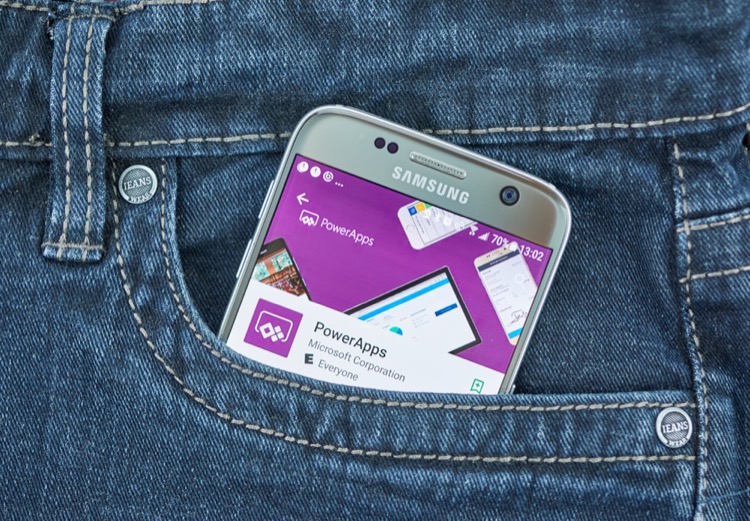Secure Sharing of Power Apps in Microsoft Teams - A Guide
Learn how to share Power App in Teams with security. Control your app visibility, updates, deletion permissions, and share with colleagues efficiently.
The author "Pragmatic Works", provides a comprehensive guide on how to share a Power App in Microsoft Teams with security. This complex process involves assigning table permissions, setting access roles and sharing the app with particular security groups within an organisation.
- The sharing process can be achieved in Teams with users of your team and those outside your team. A crucial part of app sharing lies on the table permissions assigned to your Dataverse Teams tables.
- The author lays emphasis on some out-of-the-box settings that allow you to regulate whether users can see their data, update, and delete data set permissions, and share apps with colleagues.
- Furthermore, the author gives a step-by-step breakdown on how to successfully share an app within your company, including assigning the correct table permissions for the Colleagues with access role, choosing which apps they should access, and selecting a security group for this role.
- Assigning table permissions to the Colleagues with access role, is something that should be looked into and understood by app sharers. The default setting grants no access to any data within any custom tables. This can be amended to allow varying levels of access across Full access, Collaborate, Reference, and Private.
- Additionally, there are necessary steps given for managing table permissions, including access role selection and saving.
- This text also provides a thorough guide on how to share an app with an existing security group, including sharing with a single security group and ensuring the membership type must be Assigned.
- It is also possible for a tenant administrator to pin the apps for end users in Teams, following the steps to add an app to the app catalog and then editing or creating a new Teams app setup policy with your app.
Wider Context: The Importance of Power App Sharing in MS Teams:
In the age of modern workspace, collaboration and communication tools like Microsoft Teams have become a necessity. Sharing Power Apps within Teams simplifies task management and enhances productivity within an organization. The high level of security controls such as table permissions and specific role allocations, ensure data integrity and accessibility. This capacity to control data visibility among team members is an integral part of MS Teams design for secured data sharing across different roles within an organization. By understanding these procedures and controls, organizations can leverage the full potential of Microsoft Teams, making collaboration both efficient and secure.
Learn about Sharing Power App In Teams With Security

In this YouTube video, Matt showcases how to effectively share Power Apps in Teams while also ensuring security. Matt's comprehensive series started with him building an app from scratch, with the current thirteenth episode focused on sharing the application within and outside the Team, all in a secured manner. The aspects addressed are table permissions for Dataverse Teams tables which, notably, includes impressive default settings.
- The video demonstrates how users can manage visibility of their data, access other's data, update or delete information.
- Sharing apps with colleagues is elucidated. As an app owner, the video shows how to share the app and its underlying data with colleagues in the company who are not part of the development team.
- Assigning correct permissions to colleagues with access roles and selecting appropriate security groups is discussed.
- Teams admin can also pin apps for users in the Teams app bar for easier discoverability.
- If the app doesn't appear as expected, users are advised to try signing out or refreshing their browser.
- The significance of owning the team is underscored, with non-owners unable to share apps or edit permissions.
- Importantly, the default permissions can be changed to Full access, Collaborate, Reference or Private depending on the app owner's preference.
To further delve into this subject, viewers can revisit the 12 previous episodes, which discuss building an app in episodes. Microsoft also offers Power App and Teams integration training courses that would provide in-depth knowledge on this topic. These trainings would be advantageous for Team owners and admins, app developers and those interested in creating secured collaborative platforms.
More links on about Sharing Power App In Teams With Security
- Share Power Apps with Microsoft Teams Users
- Jan 30, 2022 — Once the property is set to True, you can share the Power App with Teams users. This setting is not required to share a Microsoft cloud flow.
- How groups & teams work in Power Apps & Dataverse
- Mar 21, 2022 — Our demo users / groups / teams · Environment security group · Sharing Power Apps access to a group · Environment security group vs. app sharing.
- Exam PL-200 topic 2 question 33 discussion
- Jan 24, 2023 — Option D suggests sharing the app with a security group in Teams. ... Also you can only share using Power Apps in Teams, not from the maker portal ...
- Sharing Dataverse for Teams apps outside the team
- May 11, 2022 — The ability to share an app with one Azure AD security group makes Dataverse for Teams quite an attractive platform for low-code apps that have ...
- A Fool-Proof Way To Share Power Apps With External Users
- Feb 13, 2022 — We can share Power Apps with external users belonging to an Azure AD security group and automatically grant app access & licenses.
Keywords
Microsoft Power App sharing, Teams App Security, Assigning Table Permissions, Colleagues Access Role, Dataverse for Teams
